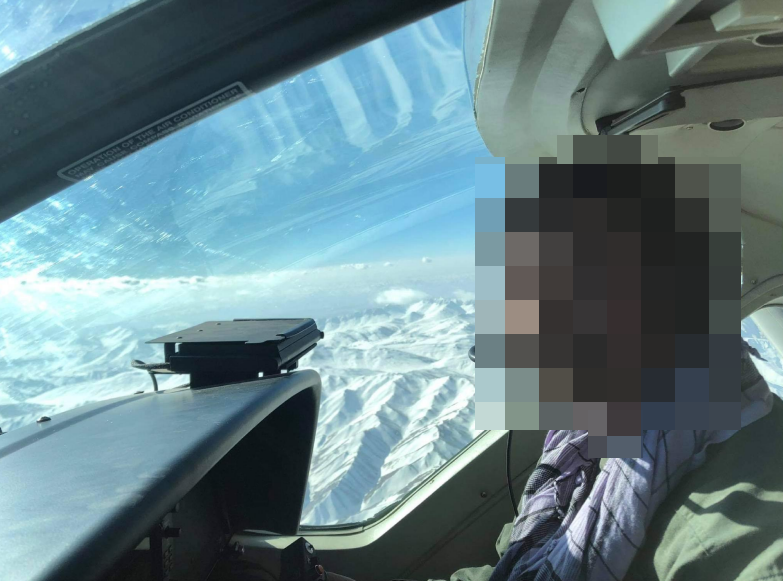Abandoning the Afghan war hero who fought with British forces is an intolerable injustice
Editorial: The UK and Nato need to consider how, in future conflicts, those at the sharp end in foreign wars will view fighting alongside perfidious Western allies

It is doubly shameful that an Afghan pilot who fought alongside British forces – and who must remain anonymous for safety reasons – has not had his contribution recognised by the British government, and that his case has had to be taken up by the United States. It is an intolerable injustice and an embarrassment, but The Independent will continue to campaign for him, and assemble a formidable coalition to fight for him, until ministers do the right thing – for as long as it takes.
Although this air force lieutenant did not serve directly in the British forces deployed to Afghanistan during the long campaign against the Taliban, he served alongside them, and flew missions planned by the British and the Americans, displaying the same bravery and risking his life in the same way as his allied comrades. Indeed, as an Afghan national, he and his family might well have been shown less mercy if captured.
In the heat of battle in Helmand province and elsewhere, the British authorities weren’t zealous about drawing petty distinctions. His fight was our fight. Now, though, because of the narrow way in which the Arap (Afghan relocations and assistance policy) scheme has been drawn up, our Afghan hero is very much on his own. So is his family back home.
Fortunately he has friends with influence, as well as the kind of humanity, compassion and sense of honour that are in keeping with the best of British military tradition. General Sir Richard Dannatt, for example, the former head of the British army, has been moved by this case, and by the way that a fellow fighter has been “cast off” by the British for the US to deal with. He calls the British government’s decision a “complete abrogation of our responsibilities and our decency”, saying: “Are we denying he fought against the Taliban? This is a most ungenerous decision which sits uncomfortably with common decency.”
Air Marshal Edward Stringer, commander of RAF air operations during the Afghan conflict, a man with an even more detailed knowledge of the role the allied air forces played together, adds that the government is making a “weaselling distinction” over the pilot’s war record and his Arap application.
There is cross-party political outrage, too. Former leader of the Conservative Party Sir Iain Duncan Smith has urged his colleagues to “do what is necessary to keep to the covenant that we protect his life as he helped to protect ours”. Stephen Kinnock, on the shadow defence team, also put it well: “Britain has a moral obligation to these Afghans, yet Operation Warm Welcome has become Operation Cold Shoulder.”
Today, in the humiliating light of the rejection of his claim, the pilot is in despair, and it is entirely the fault of British bureaucracy, which is taking the implementation of migration policy into callous territory. Like so many who arrived by irregular routes, the pilot is threatened with deportation to Rwanda.
Quite apart from his human rights, the UK and Nato need to consider how, in future conflicts, those at the sharp end in foreign wars will view fighting alongside perfidious Western allies. As the despairing pilot himself put it: “We made the biggest mistake in my life when we cooperated with the American forces and British forces, and now we have to suffer the pain of being stateless, far from family, [in] humiliation and misery.”
This case highlights how dismal the treatment meted out to refugees outside the specific schemes dedicated to some Ukrainian, Hong Kong and Afghan citizens can be. There is still no settled and secure route to claim asylum in the UK. What’s more, there is no consideration given to the sacrifices and dangers endured by those, such as this Afghan pilot, who put their lives on the line alongside British soldiers, sailors and air force personnel. There ought to be some kind of “covenant”, as Sir Iain suggests, to recognise those who were ready to pay the ultimate price for freedom.



Join our commenting forum
Join thought-provoking conversations, follow other Independent readers and see their replies
Comments